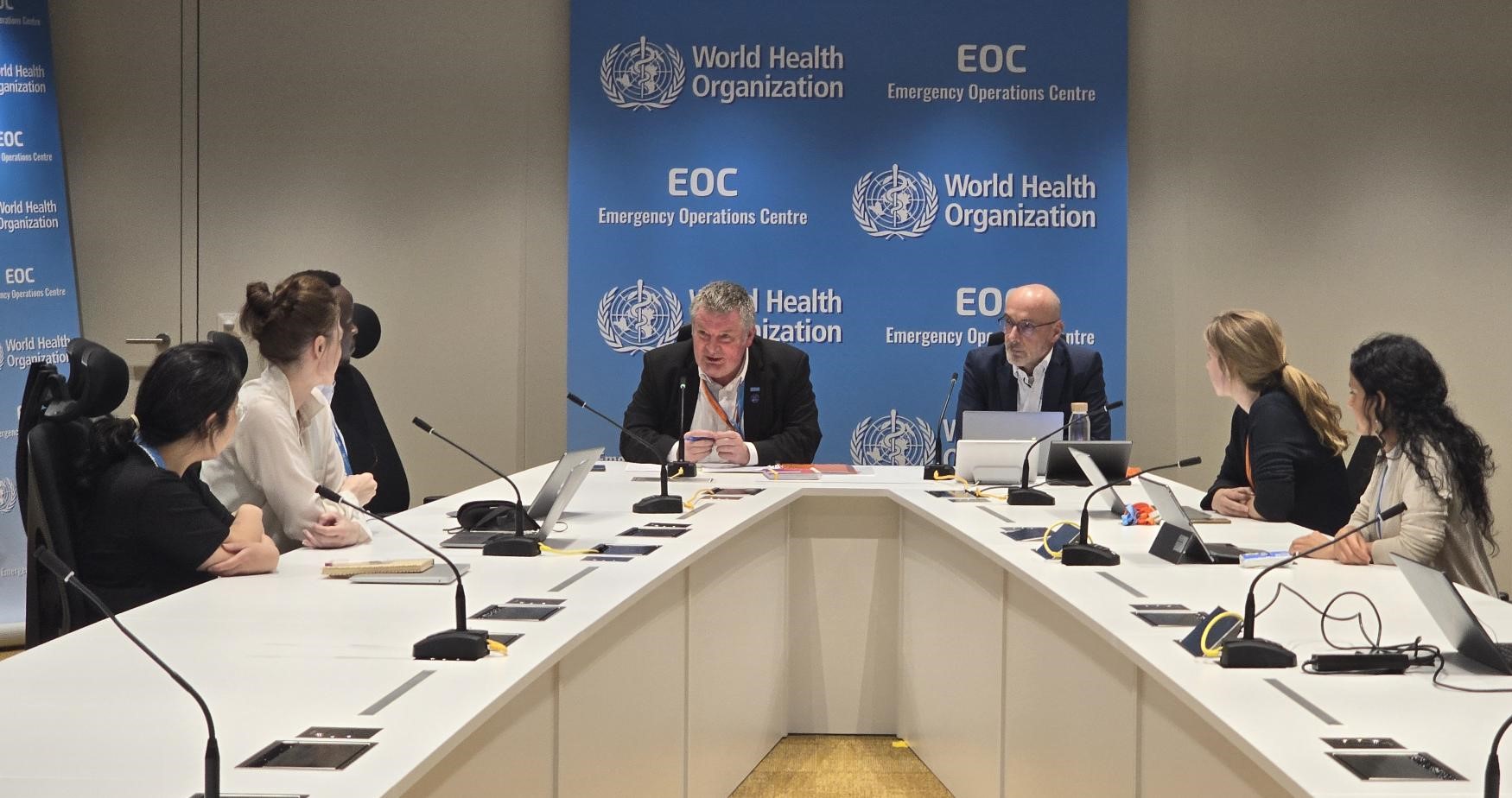What was first tested during a 2019 diphtheria outbreak in Cox’s Bazar, Bangladesh1 has become a trusted information management tool during outbreak response. The April 2024 launch event marked the formal transition of Go.Data to an open source tool. The event was hosted by the GOARN Operational Support team and the WHO Open Source Programme Office (OSPO)2.
Go.Data is a web and mobile application developed by WHO in collaboration with the Global Outbreak Alert and Response Network (GOARN) partners, for use by public health workers, focusing on first line responders, epidemiologists and contact tracers during outbreak response. The tool equips responders to have more structured data collection, integrated data sets, standardization to compare across different areas or events, real-time analyses to inform field operations, and a series of functionalities to better organize and monitor contact tracing activities.
As the use of Go.Data expanded, it became increasingly evident that a transition to open source was needed to increase country ownership, facilitate interoperability with national surveillance systems, and maintain flexibility to local contexts.
To this end, the Go.Data project team has been consulting with the WHO OSPO to ensure that all aspects of transitioning to open source were considered.

Go.Data transition to an open-source tool, launch event
The online launch event was attended by WHO staff in countries, regional offices and HQ, and representation from ministries of health, national public health agencies, universities and other GOARN partners.
Speaking at the launch, Dr Mike Ryan, WHO Deputy Director-General and Executive Director for the WHO Health Emergencies Programme, emphasized the relevance of having tools that allow us to provide a more precise and effective epidemic responses.
Dr Ryan highlighted the various challenges that teams encounter when responding to an outbreak, including the management of the complex data and relationships among cases and contacts while simultaneously tracking the disease and minimizing the impact on the community. He also noted that contact tracing is a complex and multi-dimensional process requiring constant vigilance and precise situational awareness.
Dr Ryan emphasized the significance of tools such as Go.Data, which can effectively support teams to overcome the aforementioned challenges and maintain situational awareness. He further emphasized that:
‘“What is important around the Go.Data project is that it is not just a software tool, but a community of practice, a group of professionals committed to the process of developing tools that support outbreak containment, which are fit for purpose and support teams that have to do a difficult job”.
He concluded by stating that Go.Data is not only a tool but promotes a structured process and a state of mind – ensuring precision in public health interventions with minimal impact on communities. He thanked first line responders, implementing countries and institutions, WHO and GOARN partners who were instrumental in developing and adapting Go.Data and welcomed the community of users to participate in this next phase of the Go.Data project.
At the launch event, the Go.Data project team outlined the origins of the Go.Data project, future steps as an open-source tool and how the community of users can engage moving forward. The WHO OSPO team discussed various aspects of this transition and its implications, including the updated license and terms of use. In addition, country implementers in Brazil and Uganda along with a developer supporting several implementations in the Pacific islands and countries shared experiences and reflections.
Armand Bejtullahu, GOARN Manager a.i., in the Department of Alert and Response Coordination at WHO, thanked all partners and stakeholders who contributed extensively to the evolution of Go.Data from the initial stages to the present form as an open-source tool. He called on partners to continue to collaborate to make it more efficient and responsive to country needs and demands.
